This effectively meant that, as things stood at that time, India would also lose hosting rights of the FIFA u-17 women’s World Cup scheduled to be played from October 11-30 this year.
It therefore wasn’t a big surprise to learn that the Sports Ministry had moved an application in the Supreme Court seeking an end to the mandate of the Committee of Administrators (CoA), as demanded by FIFA. While banning the AIFF earlier this month FIFA had said that the women’s age-group showpiece tournament “cannot currently be held in India as planned.”
FIFA’s decision to take the extreme step was an example of the inevitability Indian sports and sportspersons had been fearing for some time. Like the hockey, judo, equestrian and table tennis federations, the AIFF too was put under a court-appointed Committee of Administrators (CoA), after the Supreme Court removed the AIFF office-bearers in May this year for failing to bring its Constitution in line with the 2011 National Sports Code and not holding elections that have been due since December 2020.
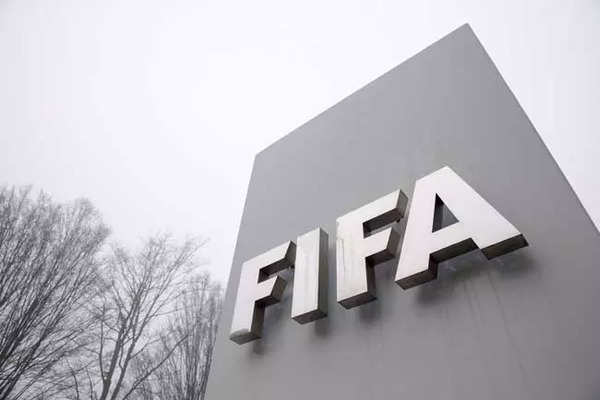
(Photo by Philipp Schmidli/Getty Images)
And when the AIFF couldn’t bring its house in order by the deadline of July 31 given by FIFA, the world body de-rostered it, with players facing the brunt of it. There was of course a huge question mark over the women’s U-17 FIFA World Cup to be held in India later this year and more immediately, the Gokulam Kerala FC team was told to return home from Tashkent without playing in the AFC Women’s Club Championship. A huge blow for the team and its players and for women’s football in the country as well.
The AIFF CoA was disbanded, as asked by FIFA. Fresh AIFF Executive Committee elections will now be held on September 2.
But when a country’s national Olympic committee too gets punished for the same offence, i.e., not following the National Sports Code, then it also loses the authority to question the national sports federations (NSF) under its ambit. Soon after FIFA’s decision came the Delhi High Court ruling to disband the executive council of the Indian Olympic Association (IOA) and put it under a CoA as well.
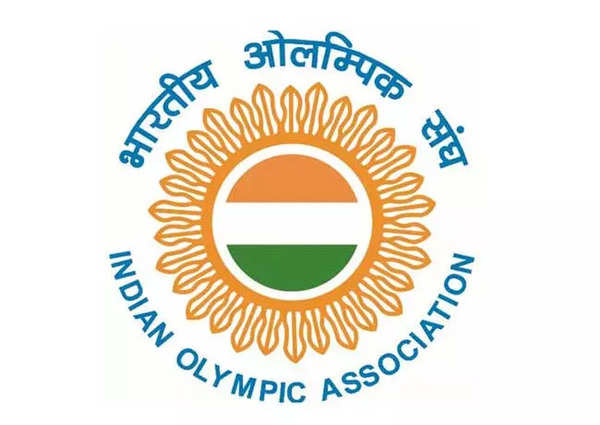
The IOA’s elections have been pending since December 2021 and it is currently being headed by an acting president in Anil Khanna, ever since Narinder Batra’s removal from the post in June after a high court order.
However, the IOA knocked at the Supreme Court’s door against the high court order to put it under the CoA and was successful in getting a stay order to enforce status quo, despite not being in accordance with the Sports Code. As part of this interim relief, the Supreme Court on August 18 effectively mandated that the Delhi High Court appointed CoA cannot take over the affairs of IOA.
On Monday (August 22), the Supreme Court extended the status quo on this matter, asking the parties to file replies on the IOA plea, challenging the Delhi High Court order.
But that does not take away from the fact that all is not well as far as governance of Indian sports is concerned.
To define the CoA’s role in simple terms – it’s a committee constituted by a court order to replace the suspended administration of a National Sports Federation (NSF), with a job to streamline the affairs of the NSF in a manner in which it adheres to the statutes of the National Sports Code.
The 2011 National Sports Code – The big bone of contention
Before 2014, the NSFs were being governed by the Sports Ministry’s guidelines from time to time. Even though the Sports Code was put together in 2011, it couldn’t be implemented until 2014, when a Delhi court ruled it as the valid marker to govern sports bodies in India.
It sounded like a death knell for bureaucrats and politicians heading various federations, preventing fresh elections for years with their political influence, with no room for real transparency when it came to financial governance, accountability and tenures. As per media reports published in March 2018, 47% of the presidents of National Sports Federations were politicians.
In February last year, the Sports Ministry came out with a relaxation clause in the Sports Code to protect NSFs from being derecognized, which once again put the sanctity of the Sports Code on the line.
“Before 1991, log limited kharab the (officials were corrupt in a limited way). But after 1991, when the Indian economy boomed and money came in, vested interests also increased; and the corruption that was already there increased as well,” opined the legendary Aslam Sher Khan, India’s former hockey player and member of the 1975 World Cup-winning team, while talking to TimesofIndia.com.
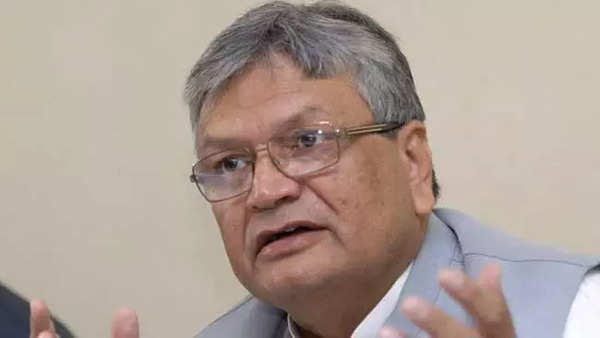
Aslam Sher Khan, former hockey player (Twitter Photo)
Khan is one of the whistleblowers trying to rid Indian sports, in his case hockey, from the fiefdom of those ruling sports with an iron fist.
In May this year, after Khan’s plea challenging Narinder Batra’s position as life member of Hockey India against the Sports Code, the Delhi HC suspended Hockey India’s administration and constituted a three-member CoA to look after its affairs, amend the Constitution and hold fresh elections. The Supreme Court, when approached by Hockey India later, refused to interfere with the Delhi HC order.
Since then, the International Hockey Federation (FIH) has written to the Hockey India CoA expressing its displeasure over the delay in putting things back in place. An FIH delegation then visited India to have further talks with the CoA members AR Dave, Zafar Iqbal and SY Quraishi, keeping in mind the senior men’s World Cup to be hosted by Odisha in January next year.
A joint statement by the FIH and the Hockey India CoA then announced October 9 as the deadline to complete the election process.
It’s widely believed that the FIH isn’t in a position to do what FIFA did with the AIFF because the sport of hockey is heavily dependent on the money generated by India.
“Because FIFA is too big, they don’t bother much about India being a big sports market, etc. They have a lot of money. But for cricket and hockey, I can guarantee that the world bodies (FIH and International Cricket Council) are overly dependent on the money that comes out of India,” said Khan talking to TimesofIndia.com from London, recalling the one time (2017) when the Board of Control for Cricket in India was also put under the CoA.
Looking at it from a fan’s eyes, the layman’s question is always this: ‘Why does resolving matters of a sports federation require going to the court?’
All roads for an answer to that question lead to two things: One – People not willing to give up control and Two – Satisfying egos at all costs. That doesn’t leave any other option than taking legal recourse.
“I stopped playing hockey after 1976, and I have been fighting against this system since 1977 or 1978,” said Khan.
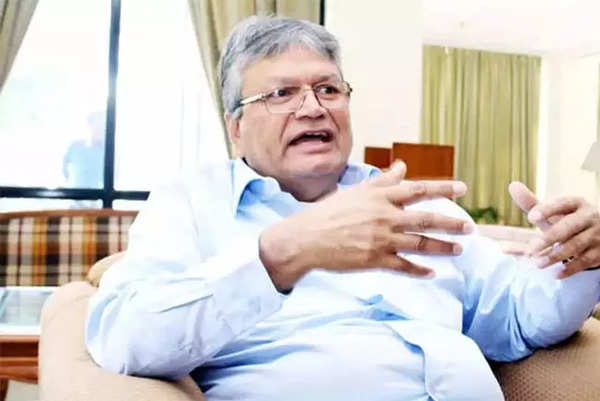
Aslam Sher Khan, former hockey player (Twitter Photo)
“It’s been more than 40 years. So imagine, if I have been saying since then that the system is not right, how much worse it has become in that period.” Aslam Sher Khan further told TimesofIndia.com.
Shaji Prabhakaran, who heads Football Delhi and has held consultancy roles with FIFA and the Asian Football Confederation, believes that matters need to be resolved within the sports community, which will in turn need a new mechanism to be put in place by the government.
“The government must come out with a dispute resolution mechanism in sports governance. That way these matters will be resolved within the structure of sports and it won’t reach the courts,” said Prabhakaran when approached by TimesofIndia.com.
“It will help in saving resources, (ensure) faster resolution and (will be an) appropriate way of resolving things within the community of sports itself. That’s what the global structure is,” he added.
“This is the right time for the government to enact that kind of structure. That way the governance crisis will be the least and international sporting bodies will not have the kind of issues (objections) that we are experiencing now,” Prabhakaran further told TimesofIndia.com, pointing at FIFA’s objection to a court-appointed committee calling the shots at AIFF, even if for a limited period.
A summary of the above mentioned details points at autocracy, something that is perhaps alleged the most by the equestrian fraternity in the country. So much so that no one agreed to put their names to quotes for fear of their careers being jeopardised.
Run largely by the Army Service Corps (ASC), the Equestrian Federation of India (EFI) had been given time until June 2022 to amend its constitution in line with the sports code, failing which the EFI risked losing the status of a national sports federation.
A decision on that may be taken soon. The EFI had announced holding elections last month, but doubts have been raised over whether the electoral process is in line with the Sports Code.
Talking to TimesofIndia.com, some members of the equestrian fraternity spoke on the condition of anonymity, alleging that the EFI “has increased the numbers of ASC clubs under the EFI umbrella and given them voting rights, which, they allege, has been done to – ‘rig the electoral process’.”
Furthermore, these members of the Equestrian fraternity further told TimesofIndia.com that the autocratic nature of the EFI’s decision-making processes hadn’t changed despite being pulled up by the court for not being in order.
“The venue for the FEI World Jumping Challenge (Meerut, Uttar Pradesh) has been randomly chosen,” said an agitated club owner, adding further that none of the members were consulted before finalizing the venue for a tournament that gives Indian riders valuable points.
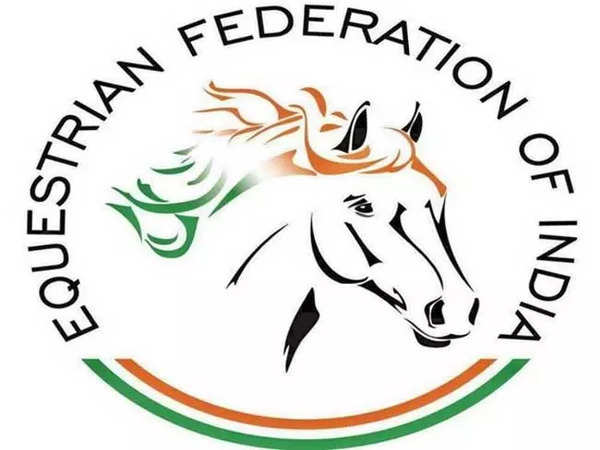
It has been learnt that many of the riders are thinking of not participating in the tournament because of logistical issues, with no airport near Meerut and stabling horses for a large number of days at a far-off location a huge problem both logistically and financially for outstation riders.
“The athletes are the ones who are suffering. We don’t have a say. None of our mails get a response,” said one aggrieved member of the fraternity.
Ironically, FIFA dropped the ‘ban bomb’ at a time when the country was rejoicing its success at the Birmingham Commonwealth Games, led by the track and field athletes enjoying their best ever show in a CWG edition held outside India.
Aslam Sher Khan believes a change on the field of competition is evident and the investment made on athletes and sports in general has started paying rich dividends, and it can get even better if governance and administration too are put in order.
“Ever since India has started investing in sports, like spending crores to send athletes abroad for training to Europe and USA, the results are now showing with these kids winning individual medals and India making its (sporting) presence felt. Now, along with this, if India can correct its (administrative) sports system as well.”
!(function(f, b, e, v, n, t, s) {
window.TimesApps = window.TimesApps || {};
const { TimesApps } = window;
TimesApps.loadFBEvents = function() {
(function(f, b, e, v, n, t, s) {
if (f.fbq) return;
n = f.fbq = function() {
n.callMethod ? n.callMethod(…arguments) : n.queue.push(arguments);
};
if (!f._fbq) f._fbq = n;
n.push = n;
n.loaded = !0;
n.version = ‘2.0’;
n.queue = [];
t = b.createElement(e);
t.async = !0;
t.src = v;
s = b.getElementsByTagName(e)[0];
s.parentNode.insertBefore(t, s);
})(f, b, e, v, n, t, s);
fbq(‘init’, ‘593671331875494’);
fbq(‘track’, ‘PageView’);
};
})(
window,
document,
‘script’,
‘https://connect.facebook.net/en_US/fbevents.js’,
);if(typeof window !== ‘undefined’) {
window.TimesApps = window.TimesApps || {};
const { TimesApps } = window;
TimesApps.loadScriptsOnceAdsReady = () => {
var scripts = [
‘https://static.clmbtech.com/ad/commons/js/2658/toi/colombia_v2.js’ ,
‘https://www.googletagmanager.com/gtag/js?id=AW-877820074’,
‘https://imasdk.googleapis.com/js/sdkloader/ima3.js’,
‘https://tvid.in/sdk/loader.js’,
‘https://timesofindia.indiatimes.com/video_comscore_api/version-3.cms’,
‘https://timesofindia.indiatimes.com/grxpushnotification_js/minify-1,version-1.cms’,
‘https://connect.facebook.net/en_US/sdk.js#version=v10.0&xfbml=true’,
‘https://timesofindia.indiatimes.com/locateservice_js/minify-1,version-14.cms’
];
scripts.forEach(function(url) {
let script = document.createElement(‘script’);
script.type=”text/javascript”;
if(!false && !false && !false && url.indexOf(‘colombia_v2’)!== -1){
script.src = url;
} else if (!false && !false && !false && url.indexOf(‘sdkloader’)!== -1) {
script.src = url;
} else if (!false && (url.indexOf(‘tvid.in/sdk’) !== -1 || url.indexOf(‘connect.facebook.net’) !== -1)) {
script.src = url;
} else if (url.indexOf(‘colombia_v2’)== -1 && url.indexOf(‘sdkloader’)== -1 && url.indexOf(‘tvid.in/sdk’)== -1 && url.indexOf(‘connect.facebook.net’) == -1){
script.src = url;
}
script.async = true;
document.body.appendChild(script);
});
}
}







More News
Watch: Virat Kohli exacts sweet revenge from Ishant Sharma in a friendly banter – Times of India
‘Ravindra Jadeja didn’t change his angle…’: Michael Hussey on allrounder obstructing the field dismissal | Cricket News – Times of India
Chennai Super Kings beat Rajasthan Royals to boost IPL play-off hopes